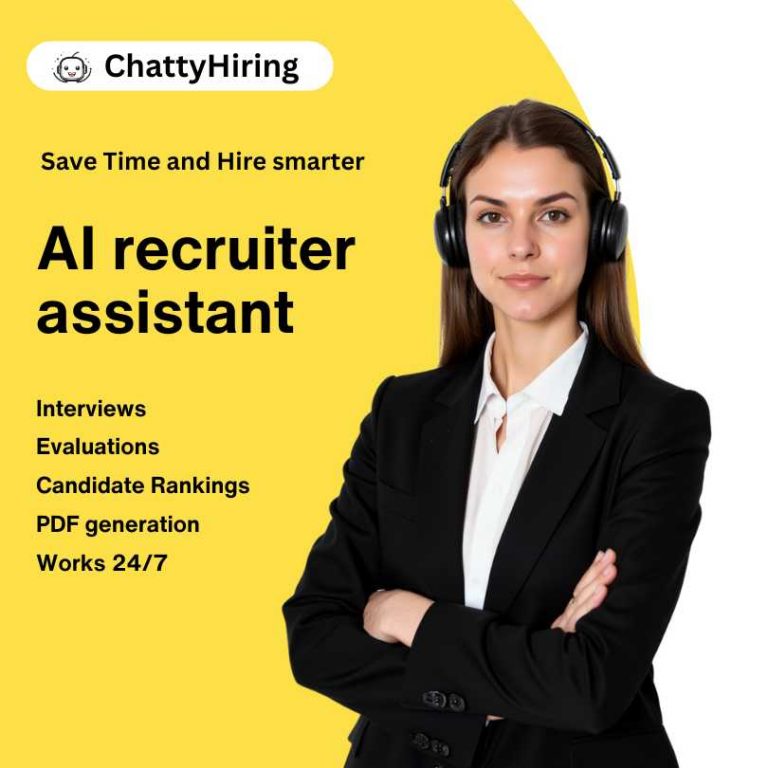The retail sector faces unique challenges when it comes to securing the necessary talent, especially in a high-turnover environment with a demand for temporary staff.
The high volume of candidates for each position, particularly during peak seasons, creates a significant challenge for talent teams. Managing this volume can be overwhelming as they must quickly filter through candidates to find the best fit.
Manual Work and Low Productivity of Tools
Many candidates submit resumes that lack specific or detailed information about their skills, experiences, or competencies in sales. This makes initial evaluation difficult and can result in time wasted interviewing individuals who do not meet the basic requirements.
In this sector, speed in filling a position is crucial, especially during high-demand periods. Slow processes can lead to operational losses, and hiring unsuitable candidates can directly impact customer service and the employer’s brand.
For talent professionals, collecting resumes from both online job portals and directly in-store adds complexity to the application management process. Recruitment teams need to be agile and capable of efficiently handling multiple candidate entry channels.
These challenges highlight the urgent need to optimize selection processes, as HR teams are often overwhelmed by high candidate demand and the need for fast, effective hiring while still maintaining a good candidate experience.
How AI Improves Recruitment in Retail
Artificial intelligence has emerged as a technology particularly suited to addressing challenges related to the automation and scalability of manual processes. The challenge is to assign tasks that can be optimized through AI without losing the human touch.
From a selection process perspective, many tasks can be automated and digitized to simultaneously improve team productivity and candidate experience.
- AI assistants conduct personalized interviews to supplement information often missing in candidate resumes. By automating screening interviews and asking specific questions about work experience, a more comprehensive view of each candidate can be obtained without wasting time on unnecessary interviews.
- In retail, where speed is essential, a WhatsApp conversation with an AI enables fast, efficient communication between potential candidates and companies. AI chatbots can send reminders, manage interviews, and provide updates on the application status, streamlining processes and enhancing the candidate experience by keeping them continually informed.
- Quick candidate assessment: AI can instantly evaluate each candidate based on predefined criteria such as experience, skills, and availability. Candidates can be automatically ranked by job suitability, allowing recruiters to focus on those who meet the most relevant requirements.
- Language proficiency assessment before the interview: In retail, especially in tourist or international areas, knowing a candidate’s English or other language skills is essential before conducting an in-depth interview. Advanced AI technologies can automatically assess language proficiency, providing an accurate evaluation and saving time for talent teams.
- QR codes in stores or sales points allow candidates to use their mobile phones to interact with an AI and inquire about available positions. This streamlines the application process directly at the point of sale and accelerates hiring, avoiding unnecessary paperwork.

Impact on Talent Acquisition Teams
Talent managers and recruiters face an overwhelming number of details to consider when evaluating talent. Any additional information that helps detect insights automatically saves time and improves productivity.
The challenge is to achieve more with less work and deliver higher quality. Therefore, automating candidate screening processes in the retail sector is crucial.
Teams can leverage AI-specialized startups like the Spanish company ChattyHiring to access trained recruiting assistants capable of conducting assessments in line with each company’s culture. This way, recruiters can ensure evaluation quality while maintaining control over AI involvement.
The retail sector faces unique recruitment challenges due to high staff turnover and the need for rapid hiring. However, artificial intelligence offers innovative solutions to optimize the selection process, from personalized interviews to instant skills assessments.
-

A passionate advocate for the future of HR innovation. With expertise in leveraging AI to revolutionize recruitment processes, Carlos has a clear vision: empower HR teams while creating meaningful candidate experiences.
View all posts





